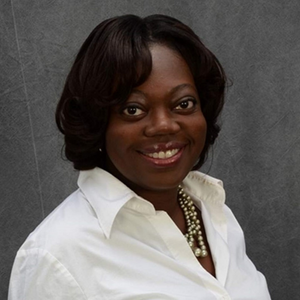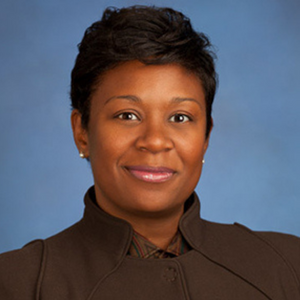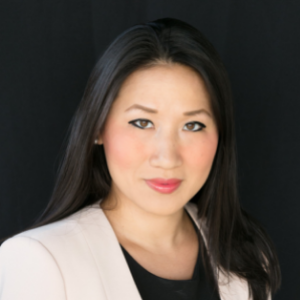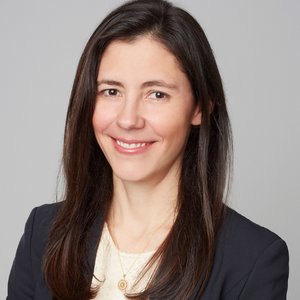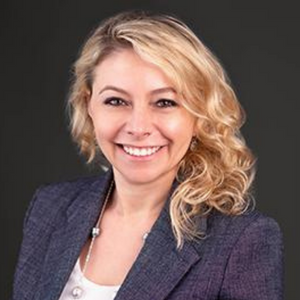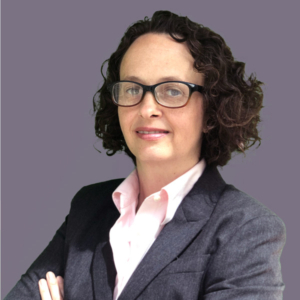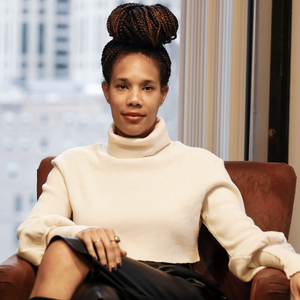Geline Midouin: Chief People Officer, Shearman & Sterling LLP
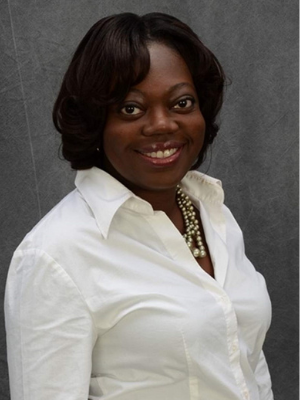 “As you arrive to a real senior level, you will start to understand that people are going to have a hard time disagreeing with you. They tend to give you filtered information,” advises Geline Midouin. “If you know that, you can be much more deliberate and intentional in terms of how you ask questions, to make sure that you’re getting the real story and understanding different perspectives.”
“As you arrive to a real senior level, you will start to understand that people are going to have a hard time disagreeing with you. They tend to give you filtered information,” advises Geline Midouin. “If you know that, you can be much more deliberate and intentional in terms of how you ask questions, to make sure that you’re getting the real story and understanding different perspectives.”
While energetically pacing at her standing desk, where she prefers to work in the mornings, Midouin talks to valuable lessons she’s learned at entry, mid-level and executive level positions in her journey – and the excitement of sitting in a people-oriented seat amidst the talent and inclusion challenges of today.
Joy of Purpose
Born in Haiti, Midouin came to the U.S. at three years old. Her Caribbean family consisted of doctors, nurses and medical professionals, so when Midouin shared she was going to pursue a liberal arts bachelor’s degree in psychology, her mother asked her how she was going to eat. Her family believed getting an education was about job security and thought obtaining a non-tangible degree wouldn’t help.
With a master’s in Organizational Behavior from Teachers College at Columbia University and having held several leadership positions across industries in the field of people and talent – from consulting to broadcast media to healthcare advertising to big law – Midouin feels inherent joy in how she approaches her work.
“I have a sense of purpose in really helping people to bring out the best in themselves to serve the greater good, whether it’s business, our clients or our community,” she says. “I’m motivated by purpose and doing something beyond myself to create a legacy.”
Midouin has always been curious by what motivates people and why they do things – and she loves driving impact and innovation, which catalyzed her move into Big Law a year ago with Shearman & Sterling, in the new post of Chief People Officer. In this position, she’s charged with having an umbrella oversight and influence on all people-related functions at the firm.
An avid reader, she is a curious thinker who draws inspiration from many places to look at issues from different lenses. She emphasizes that in today’s shifting world, it’s important to stay curious: “I ask a lot of questions. I don’t want to hear ‘I can’t’ from my team, but rather I want us to ask, ‘well, why can’t we?’”
“We’re moving away from managing structures and instead focusing on helping people manage their expertise and their careers, so they grow both personally and professionally,” says Midouin. “How can we not just provide information, but actually engage people and then measure the things we’re doing in terms of impact, so we can prioritize?”
Part of Midouin’s mission is to continue to thread diversity and inclusion through the firm’s culture: “Like the head of the orchestra, you’re able to see how things work from a more holistic view. That becomes a secret sauce in working in a more inclusive way,” she says. “You have to integrate inclusion through recruitment and professional development, so having it under one umbrella enables me to bring the key people to the table to have the right conversations and access to resources, to work in a more cohesive manner and make changes that move the needle.”
Early On: The Confidence To Speak and Go For It
Having been the only woman and/or person of color in the room often, Midouin has learned to not be intimidated by the perception from the room that she speaks for all black women or people of color (which she notes is impossible as not all individuals of any group think the same).
“I’m one person with one point of view. So I’ve had to make sure, whether I’m the only woman or only person of color, that I’m comfortable with myself so that I can share my authentic voice,” says Midouin. “You don’t want to waste that opportunity to speak, and you also want to make sure that you share a point of view that reflects authentically who you are.”
Midouin calls her confidence to speak up a learned behavior, as very early in her career she had a critical moment where she diminished her own voice. Two weeks into a new company as a junior employee, she walked into a meeting and the CEO asked what she thought. Taken aback, she caveated her response because she was new, and he replied that he asked her because he wanted a fresh perspective.
“I never did that again because I was questioning my right to give an opinion,” she reflects. “If you’re in a meeting, you’ve earned your right to be there. People are bringing you there for a reason and they want to know your opinion. And people may disagree with you too, and that’s okay, as that’s part of what gets you to a variety of views at the table.”
Noting that we often learn the most through mistakes, Midouin also recalls hesitating to go for a position because she lacked a couple of the qualifications, while watching a male colleague who possessed only a couple of them go for it. When her manager pushed her to apply, she got the position. She now realizes the “confidence gap” was at play for her.
“After I got the position, they told me it wasn’t necessarily about what I knew. It was that I asked the right questions and showed that I’d be able to figure it out,” she recalls. “Sometimes we talk ourselves out of a risk or putting ourselves out there, because we feel like we’re not good enough or that we have to be overqualified. I really encourage people to have the confidence to push themselves and take more calculated risks.”
Mid-Level: Managing People Who Are Different To You
Another key learning moment in Midouin’s earlier career was shifting from an individual contributor to a manager. The transition from being measured for your individual results to your ability to motivate the team was a wake-up call for her when a 360-degree performance review arrived: “The people who were on my team that thought more like me, loved me and my style, but the feedback from the people who were not like me was very different.”
Midouin learned that she had to pay attention to individuals and adjust her management style depending on what they needed. While she is a problem-solver who can deal with ambiguity, bring chaos to order and prefers not to be micro-managed, she realized others need structure, a more methodical agenda and more “touching base” time to flourish.
“People tend to begin by managing people how they like to be managed. You have to learn to be thoughtful and intentional about managing people that are not like you,” says Midouin. “And then, it’s not only making sure you’re hiring varied people of different styles, but also asking yourself if you are catering to all types of styles that you have on your team. Or, are the only people that are excelling, the people who are just like you?”
Executive Level: Leading with Self-Awareness
When it comes to success in the C-suite, Midouin emphasizes the value of self-awareness – including knowing what you’re good at, not good at and surrounding yourself with a team complementary to your skills.
Midouin also notes how critical it is to not surround yourself with people that only validate your viewpoint, but rather those who have the courage to disagree and give an authentic view. One time she said something intentionally ridiculous, observing that people try to be agreeable to senior figures. After no one disagreed with her, she gently chided her team with “come on.”
“I will purposely invite my team to play devil’s advocate and give me a contrary point of view, because that’s what you need in an organization. Let’s argue the opposite point of view – the one we’re not looking at,” she says. “If you’re in a team where you’re not getting dissenting points of view, you should be worried because you’ve probably hired too many people just like you and you’re looking at things in a one-dimensional way. If that is happening, ask yourself if you are creating a safe space where all people can really share their point of view, or do you need to help pull out some of the less expressed views?”
Motivating in Today’s Context
In these times when inclusion is in demand, and the Great Resignation has led to talent wars, it’s a unique moment to be in Midouin’s seat, with an increasing focus on retention and reducing turnover.
“The biggest difference is about motivation – historically you’ve competed against other organizations and now you’re competing against ideology and alternate careers and lifestyles and priorities. Because of the pandemic, people are rethinking what place work should have in their lives. Then you have generational shifts too,” she says. “Now we have to think about how to attract and retain a workforce that wants something different. What is that difference? How does that fit with your employee value proposition? And how do you shift that?”
As one example of alternative approaches, Midouin notes how Shearman & Sterling is leveraging its alumni as recruitment ambassadors, as research shows that when you hire people through a referral, they tend to stay longer than other types of hiring. Therefore, the recruitment strategy is already incorporating a consideration of retention. In addition to a direct payment, alumni also have the opportunity to gift their referral to one of a dozen charities.
Giving Back Where It’s Needed
Midouin’s family passion is tennis. In order to teach her youngest son, who is on the autism spectrum, tennis, she and her husband were driving 1.5 hours to Queens, NY to have him participate in Aceing Autism, a program that uses the Applied Behavior Analysis (ABA) method to teach tennis to children on the spectrum. When Midouin discovered that New Jersey, where she lives, had the highest per capita representation of autism, she and her husband introduced a six-week clinic through the tennis club in their local community, which they run twice per year. Midouin is also on the board of directors for MJHS, one of the largest not-for-profit health systems in the region.
“It’s about impact, and how do you leave the world a better place?” she says. “Finding a way to give back is actually more pleasurable for me.”
By Aimee Hansen

